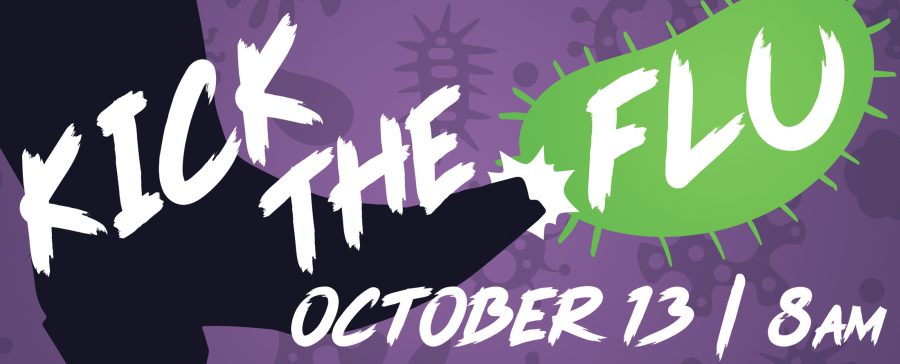By Crystal Marcum, BSN, RN, CPN Health Services, Public Health Nurse

Flu season is almost upon us! While seasonal influenza viruses can be detected at any time of the year, flu viruses are most common in the fall and winter, usually with an increase starting in October. Citizen Potawatomi Nation Health Services is gearing up for its fourth annual flu drive. This is a free event sponsored by CPN to help immunize Tribal members and other members of the community over the age of 5. This event will be located across the street from FireLake Discount Foods on Gordon Cooper Drive on Saturday, Oct. 13, from 8 a.m. until noon, but will only be offered while supplies last. Remember, the best way to prevent the flu is to get vaccinated every year.
According to the Centers for Disease Control and Prevention, people who are at higher risk of serious complications from the flu virus include young children, pregnant women, people over 65 years old and people with chronic health conditions such as diabetes, heart and lung disease, and asthma. Children younger than six months are also at high risk because they are too young to be vaccinated. We urge you to vaccinate yourself — to protect not only yourself but your loved ones around you as well. The flu vaccine is such an important preventive tool for most people. When more people get the flu vaccine, less flu can spread through our community.
The flu shot works by causing the body to develop antibodies. This usually takes about two weeks after vaccination for these antibodies to provide protection against infection when the person is exposed to the viruses that were in the vaccine. That is why it is better to be vaccinated early in the season before the flu virus really ramps up.
Clearing up misconceptions about flu vaccines
• A flu shot cannot cause flu illness. Flu vaccines are either “inactivated,” meaning they are not infectious, or they are “recombinant,” meaning they are made with no flu vaccine viruses at all. The most common side effects are local reactions at the injection site — soreness, redness, tenderness or swelling. These symptoms usually last less than two days. Many people mistake the symptoms of having a low-grade fever, headache and muscle aches as “having the flu” after vaccination, but those are common side effects that can be expected as your body is developing antibodies needed to fight the influenza virus if exposed later. The most common reactions people have to the flu shot are significantly less severe than symptoms caused by the influenza virus.
• It is not better to obtain immunity by getting the flu than the flu vaccine. The influenza virus can be a serious condition, especially for young children, older adults and those who have chronic health conditions (heart disease, diabetes, asthma). Being infected with the flu virus can cause serious complications, hospitalization and even death. It is smarter to acquire immune protection with the vaccine than with the illness from the flu virus.
• The flu shot does not provide protection against the common cold or other respiratory viruses. There are many other viruses that can cause similar symptoms to the flu.
• The flu can lead to detrimental outcomes — hospitalizations and even death. Healthy people can still get very sick from the flu. Every year, hundreds of thousands of people are hospitalized, and tens of thousands of people die from flu-related causes each year.
Other ways you can prevent the flu
• Wash your hands often.
• Cover your cough.
• Cover your mouth and nose.
• Avoid touching your eyes, nose or mouth.
• Avoid close contact with those who are sick.
• Stay home when you are sick.
• Clean and disinfect frequently touched surfaces at home, work and school, especially when someone is ill.
• Get plenty of sleep.
• Be physically active.
• Manage your stress.
• Drink plenty of fluids.
• Eat nutritious food.
CPN Public Health wishes you a healthy fall and winter season. We hope to see you at our Drive-Thru Flu Clinic on Oct. 13 where you can get your free flu shot for ages 5 and up without even having to get out of your vehicle. Spread the word, not the flu.
